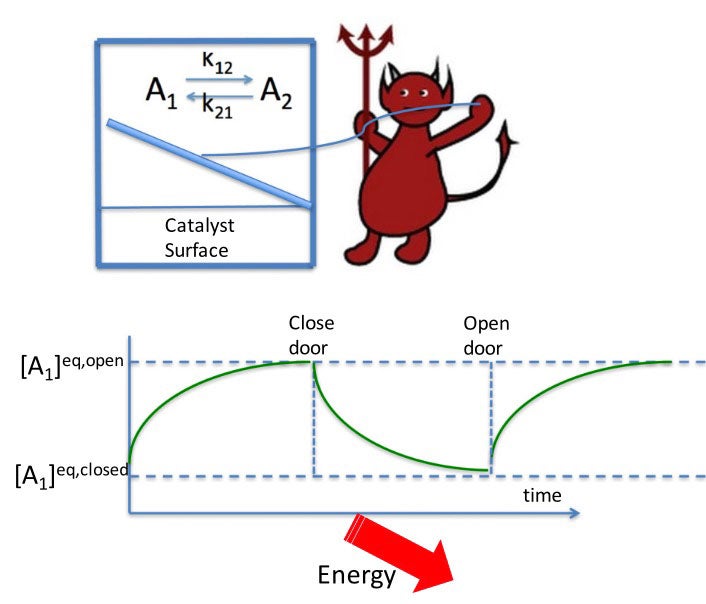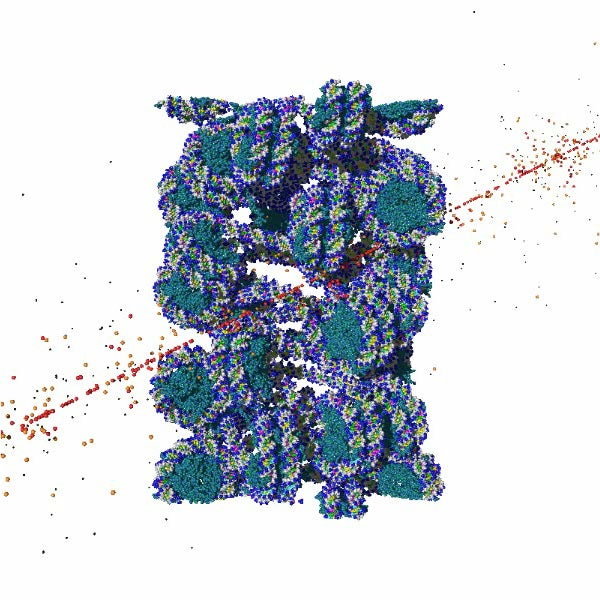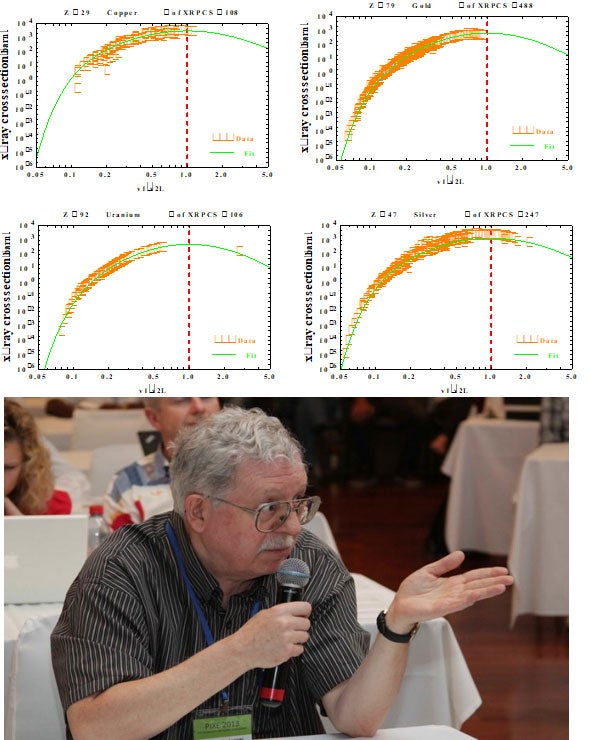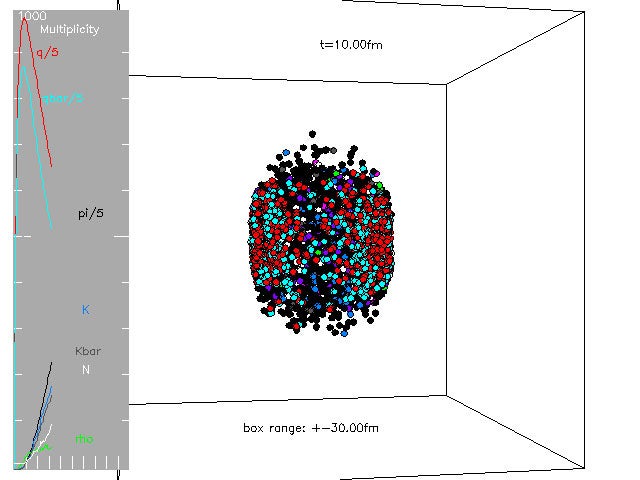Theoretical & Computational Physics
Martin Bier is interested in thermodynamics, dynamical systems, complex networks, and stochastic processes. Through a combination of computer simulations, data acquisition, and theoretical approximations, his research group tries to understand how and why systems behave the way they do. This method can be used to analyze the propagation of infectious disease, the transduction of energy through biomolecules, the transfer of stocks, etc.

Maxwell’s demon is a thought experiment first proposed 150 years ago. Later variations on Maxwell’s idea, shown above, are called Maxwell zombies.


(top) Compiled data for 5,771 total L-shell XRPCS for proton energies 26 eV ≤ E ≤ 1 GeV and all elements with 24 ≤ Z ≤ 95; universal fit is shown in green. (bottom) Dr. Gregory Lapicki speaking at a conference.

The collision of two gold nuclei at high energy as calculated from A Multi-Phase Transport (AMPT) model. The length of the box is 60 fm (6×10−14 m), while time covers the first 30 fm/c (1×10−22 s) of the collision.
Zi-Wei Lin performs research in theoretical and computational physics. His interests include
- high-energy heavy ion physics and the development of Monte Carlo transport models,
- radiation physics and space radiation protection, and
- medical physics in pseudo-CT methods for MRI-only radiotherapy.
These projects involve undergraduate and graduate students, postdoctoral researchers, as well as visiting students and professors.